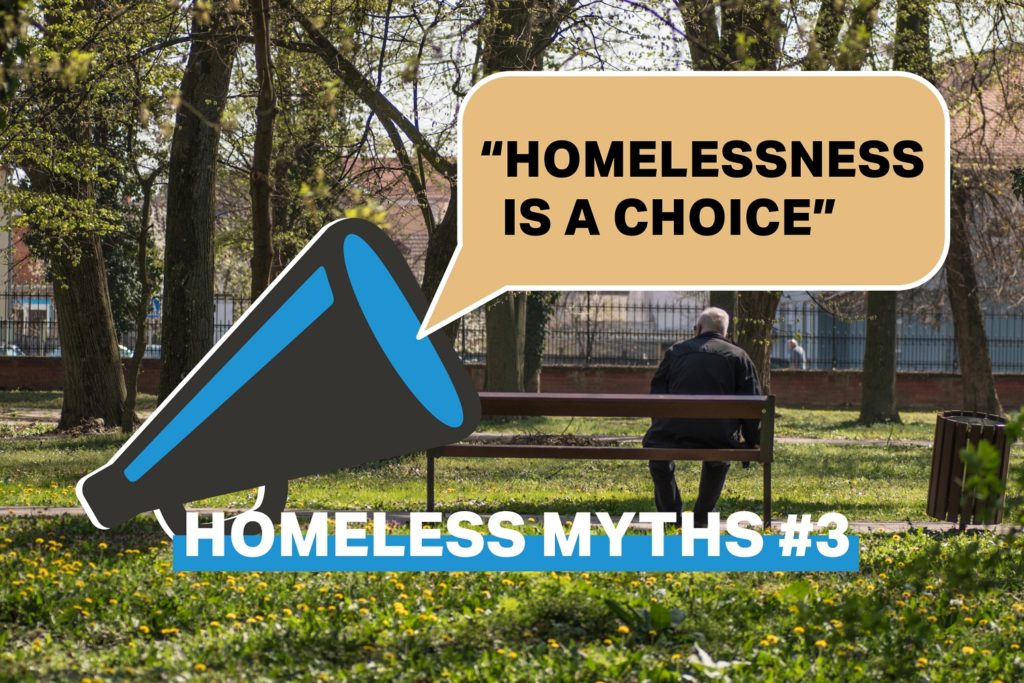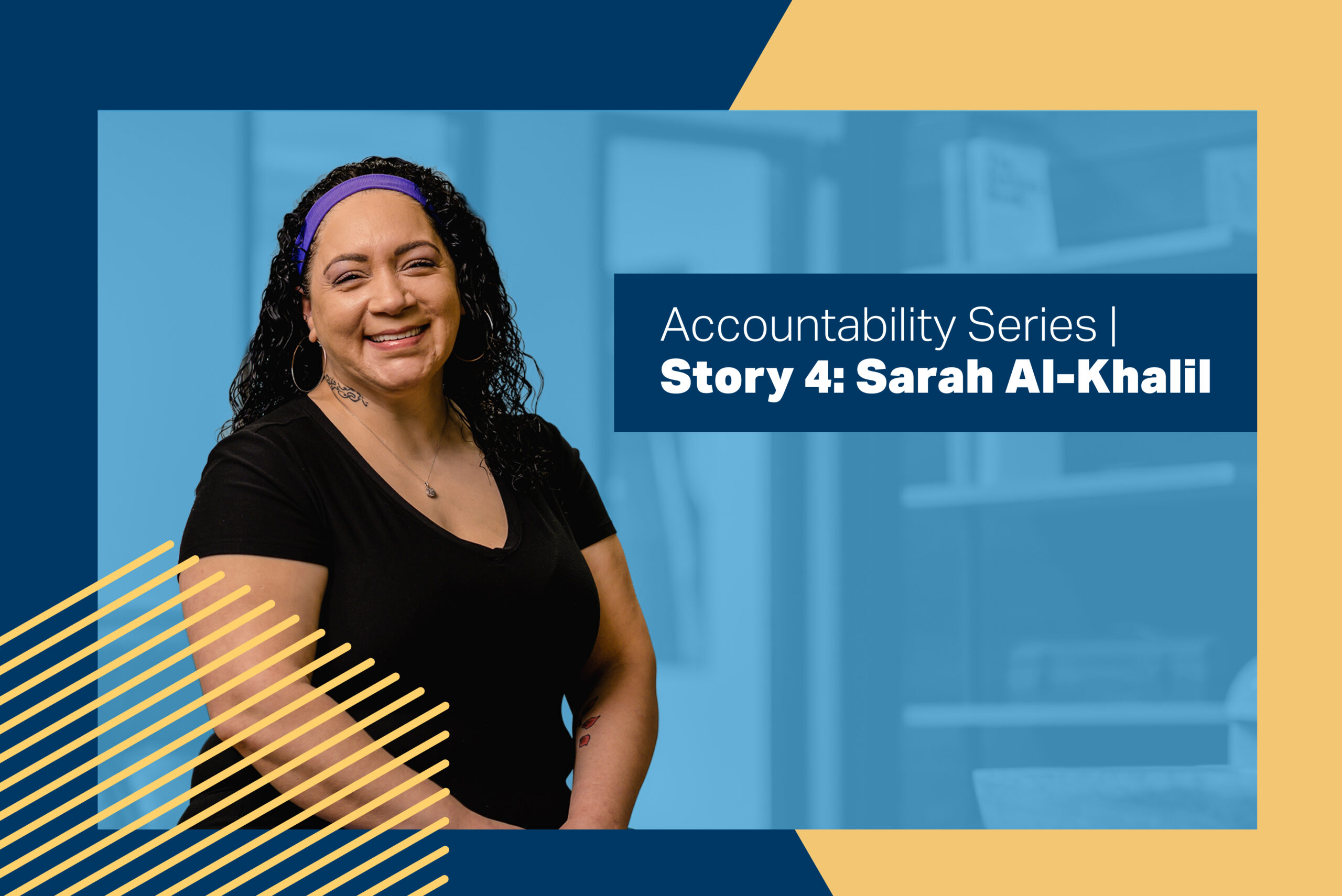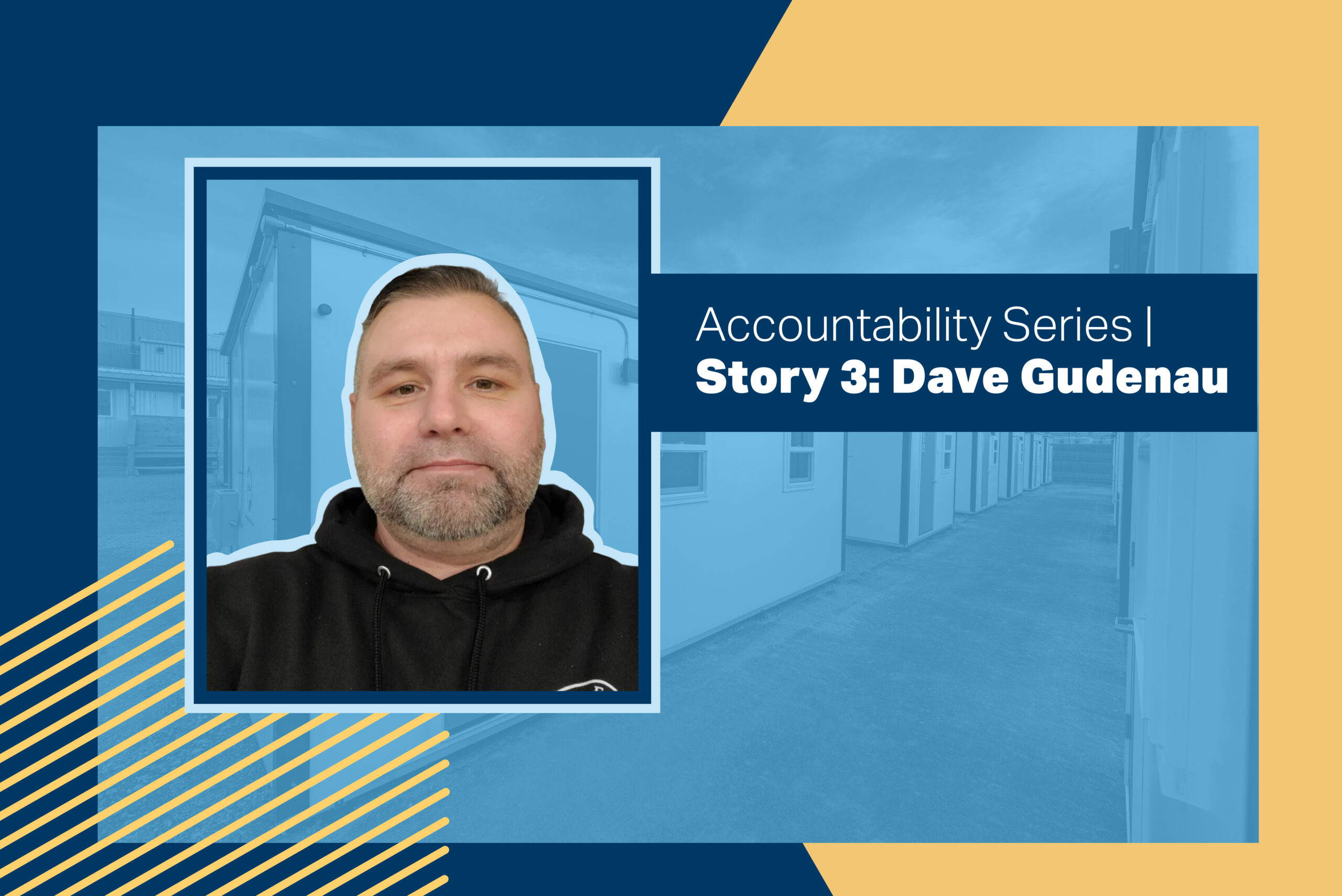Debunking Myths: Homelessness is a choice
January 20, 2022

As more people living on the margins of society are increasingly visible in cities across the country, how to address the growing homelessness crisis is on everyone’s mind. Discussions on homelessness inevitably include beliefs based on longstanding stereotypes about the unhoused community. Among the most pervasive stereotypes is that homelessness is a choice. But people who have experienced homelessness repeatedly reject this notion. They want help. They want the opportunity to move back inside.
A survey in the city of Seattle's 2016 Homeless Needs Assessment report echoed what homeless folks have said about wanting to accept a place to live. Ninety-three percent of survey respondents reported they would move inside if safe, affordable housing were available. A recent survey of approximately 140 tent encampment residents in Boston showed 95 percent “would be willing to leave their tents for housing, if it were available.”
The stereotype that homelessness is a choice coincides with the pervasive belief homeless people are drifters, moving from city to city to take advantage of free government services. People experiencing homelessness aren't just the people we see sleeping outside. They could also be the cashier at the grocery store or the dad of one of your child's classmates. Homelessness isn't always visible.
Service providers and outreach workers also say homelessness isn't a choice. In video series debunking homeless myths, United Way of Orange County spoke with advocates who shared their experience with the unhoused community.
Brian Peterson, founder of Faces of Santa Ana, shared, "I've actually never met any person that has wanted to be homeless, quite the opposite. They often share stories with me of how difficult it is to be homeless. How difficult it is to not have a good night's rest. How difficult it is to be woken up every hour throughout the night telling you to move to a different place."
I've actually never met any person that has wanted to be homeless, quite the opposite. They often share stories with me of how difficult it is to be homeless. How difficult it is to not have a good night's rest.
– Brian Peterson, Founder of Faces of Santa Ana
"When building these relationships with individuals and families, they hear that this isn't the life they chose. And it's not something that if they had all the options in the world that they would choose to experience. But it was a ripple effect from whatever life situation that they endured," Chelsea Bowers, Communications Director at City Net, shared. City Net is the service of a Pallet shelter village in Riverside, CA.
The leading cause of homelessness is economic hardship. Homelessness rates rise faster in cities where residents spend more than one-third of their income on rent.
Where did this stereotype originate? Late President Ronald Reagan is credited with bringing it to the national stage. Throughout his time in office, he said homelessness is a choice. A 1988 New York Times article includes a quote Reagan gave to David Brinkley with ABC News: "They make it their own choice for staying out there…There are shelters in virtually every city, and shelters here, and those people still prefer out there on the grates or the lawn to going into one of those shelters." Reagan's economic policies — which crippled federal and social housing programs — are cited as contributing to the modern homelessness crisis cities are grappling with today.
When homeless people don't accept the traditional options presented to them, there's a false belief that they're choosing to stay homeless. Barriers to accepting assistance at congregate shelters include: pets not being allowed; partners can't stay together because genders are separated; hours of operation don't accommodate someone working a nontraditional schedule such as an overnight shift. It's why Pallet shelter villages have removed these obstacles. Pets are welcome, partners can stay together, and residents can come and go as they need to. Our villages are a safe place to stabilize while people work towards moving onto permanent housing.
Rather than assuming the worst of our unhoused neighbors, let's show compassion instead and treat them with dignity. They are individuals going through a challenging time who need support.
This post is part of an ongoing series debunking homelessness myths.
Part One: They're not local
Part Two: Homeless is a personal failure


